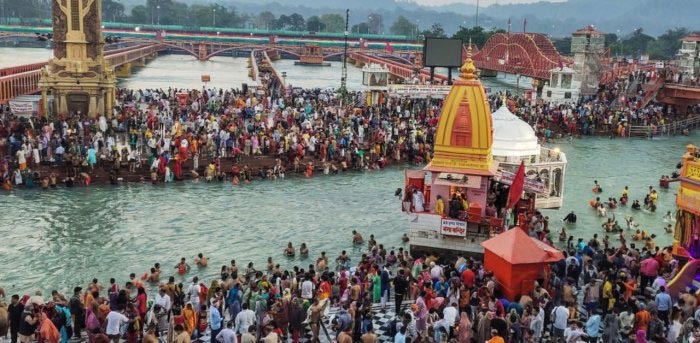NE NEWS SERVICE
AHMEDABAD, APR 18
A total of 49 people, who returned to Gujarat after taking part in the Kumbh Mela in Haridwar, have tested coronavirus positive in two days, officials said on Sunday.
Guj Health Dept @GujHFWDept issues strict advisory for judicious & necessary usage of Remedesivir.
There reports of unrestricted prescription of Remedesivir for all kinds of #Covid patients. All are requested & advised to follow advisory scrupulously.@PMOIndia @CMOGuj @AmdavadAMC pic.twitter.com/xmxcGpVi5l— Dr Rajiv Kumar Gupta IAS (Retd) (@drrajivguptaias) April 18, 2021
Of the 533 people who were tested at Sabarmati Railway Station of the city on Saturday and Sunday, as many as 49 persons were found positive in the rapid antigen test conducted by the civic health teams, a statement by the Ahmedabad Municipal Corporation (AMC) said.
After hugely successful drive through RTPCR testing at GMDC ground for western @AmdavadAMC,today we are starting same facility for Eastern City at Vastral RTO ground with support of @UnipathL laboratory at Gov fixed charges.Citizens are encouraged to take benefit of quick testing pic.twitter.com/Udjg2OYSP3
— Dr Rajiv Kumar Gupta IAS (Retd) (@drrajivguptaias) April 18, 2021
All the infected persons were shifted to Covid Care Centres in the city, it said.
On Saturday afternoon, 313 Kumbh returnees underwent rapid antigen tests on their arrival in Sabarmati by a train from Haridwar. Of these, 34 persons tested positive, the release said.
On Sunday, of the total number of 220 Kumbh returnees tested at the station, 15 were found infected.
All of them were shifted to Covid Care facilities, it added.
In order to stem the spread of the virus in the state, Gujarat Chief Minister Vijay Rupani had on Saturday announced that people returning to the state after attending the Kumbh Mela will have to undergo COVID-19 test before they are allowed to enter their respective cities and villages.
He had said that collectors of all the districts in Gujarat were directed to keep a watch on the Kumbh Mela returnees and enforce a ”nakabandi” (security checking) to prevent their entry in their hometowns without undergoing test.












